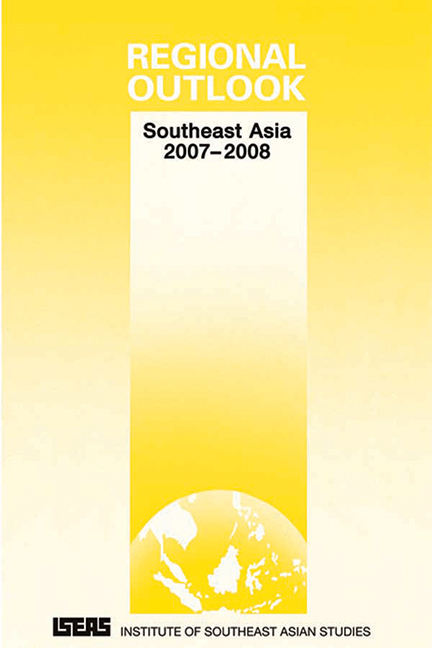Introduction
Published online by Cambridge University Press: 21 October 2015
Summary
It has long been noted that politics is most unpredictable, and it has been shown within ASEAN members' politics. The truism that politics is most unpredictable has been demonstrated by the happenings in some of the member states of ASEAN. Whilst some countries demonstrated commendable continuity and stability in 2006, the military coup in Bangkok on 19 September 2006 took many observers by surprise even though it brought a measure of stability to Thailand, which had been roiled for months by demonstrations against Prime Minister Thaksin Shinawatra. A return to political normalcy however is still awaited. Over in Malaysia, the controversy caused by the attacks of former Prime Minister Dr Mahathir Mohamad against his successor, Prime Minister Abdullah Ahmad Badawi, continued to agitate domestic politics.
Other ASEAN members such as Vietnam and Laos installed new leaders, whilst in Singapore, elections in May 2006 returned Prime Minister Lee Hsien Loong to office. The Philippines, Cambodia, and Brunei made quiet and steady progress. Myanmar slowly rolled along with its constitutional conference process, whilst Indonesia, under President Dr Susilo Bambang Yudhoyono enjoyed stability and social concord. However, the country had to grapple with the haze problem which was affecting neighbouring countries. In 2006, Vietnam was the star in the region, with its rapid and high economic growth, its accession as 150th member of the World Trade Organization (WTO) and as host of the Asia-Pacific Economic Cooperation (APEC) Summit.
On the broader regional front, major milestones included the holding of the ASEAN and the East Asia Summits in Cebu, and the progress on drafting the ASEAN Charter and the advancement of the target year to 2015 of the establishment of the ASEAN economic community. Relations with all ASEAN dialogue partners progressed well. For instance, the United States signed a Trade and Investment Framework Agreement with ASEAN in mid-2006. Talks with India on a free trade agreement (FTA) are progressing albeit slowly. With China, relations hit a new high, with the hosting of the China-ASEAN Summit in Nanning in late 2006.
- Type
- Chapter
- Information
- Regional OutlookSoutheast Asia 2007-2008, pp. xi - xviPublisher: ISEAS–Yusof Ishak InstitutePrint publication year: 2007



